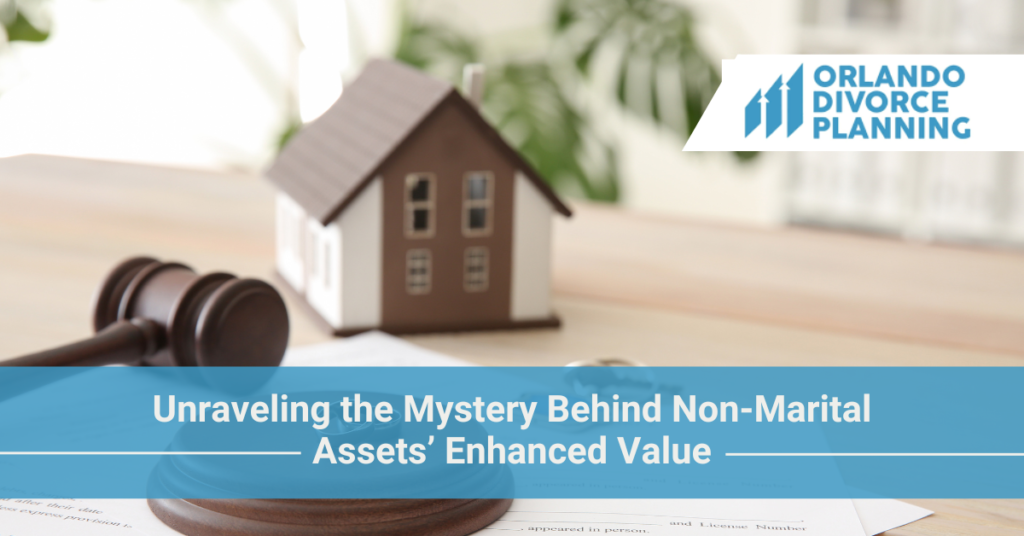When going through a divorce, there are many aspects to consider, especially when it comes to financial matters. One area that often causes confusion and contention is non-marital assets and their enhanced value. To help unravel this mystery and provide valuable insights, we will explore the financial side of divorce, specifically focusing on the Orlando Divorce Planning and the role of a Certified Divorce Financial Analyst. Whether you are contemplating a divorce or are in the midst of the process, understanding the complexities of non-marital assets’ enhanced value is crucial for protecting your financial future.
Understanding non-marital assets is vital in divorce proceedings. Non-marital assets refer to properties or assets acquired by an individual prior to the marriage or through inheritance or gift during the marriage. These assets are typically considered separate and not subject to division during divorce.
However, the enhanced value of non-marital assets can become a contentious issue. For example, if one spouse’s business or home grew significantly during the marriage, the increased value may be regarded as marital property subject to division.
To determine the enhanced value, it is essential to engage the expertise of a Certified Divorce Financial Analyst (CDFA). A CDFA can help assess the value of non-marital assets objectively, considering factors like market conditions, investments, and PASSIVE growth. Especially when it comes to the home.
By understanding non-marital assets and their enhanced value, individuals can protect their financial interests and ensure a fair settlement during divorce proceedings. Stay tuned for the next section, where we will delve into the valuation methods used for non-marital assets.
The hidden value of non-marital assets in divorce proceedings
In the realm of divorce proceedings, the value of non-marital assets can often be more than meets the eye. While these assets are usually considered separate and not subject to division, the enhanced value they gain during the course of a marriage can complicate matters.
The question then arises: should this enhanced value be considered marital property subject to division? This is a complex issue that necessitates the involvement of professionals with expertise in assessing the financial implications of divorce.
Unraveling the mystery: factors that enhance the value of non-marital assets.
As we have previously discussed, the value of these assets can significantly increase during a marriage, making it imperative to understand how they should be properly valued and divided.
One of the main challenges in navigating these complexities is determining the extent to which non-marital assets have been commingled with marital assets. This commingling can occur when separate funds are mixed with jointly owned funds or when separate property is used to acquire or enhance the value of new or existing assets during the course of the marriage (i.e., the marital home). Courts often struggle to distinguish between non-marital and marital assets in these situations, which can impact the division of property.
To address this challenge, it is essential to gather comprehensive financial information and documentation that establishes the separate nature of the non-marital assets. This can include records of pre-marital property, inheritances, and gifts received during the marriage.
Another factor to consider is the active or passive appreciation of non-marital assets. If one spouse’s professional expertise, efforts, or contributions have directly contributed to the increase in value, there may be an argument for the additional value to be considered marital property subject to division.
Valuation methods play a crucial role in determining the enhanced value of non-marital assets. Various approaches can be used, including market-based valuations, appraisals, and expert opinions. It is vital to work with professionals skilled in financial matters and divorce valuations to ensure an accurate assessment.
Conclusion
By arming yourself with knowledge and taking proactive steps, you can navigate the complexities of divorce with confidence and safeguard your non-marital assets. Remember, consulting with a qualified family law attorney can provide further guidance tailored to your specific situation.



